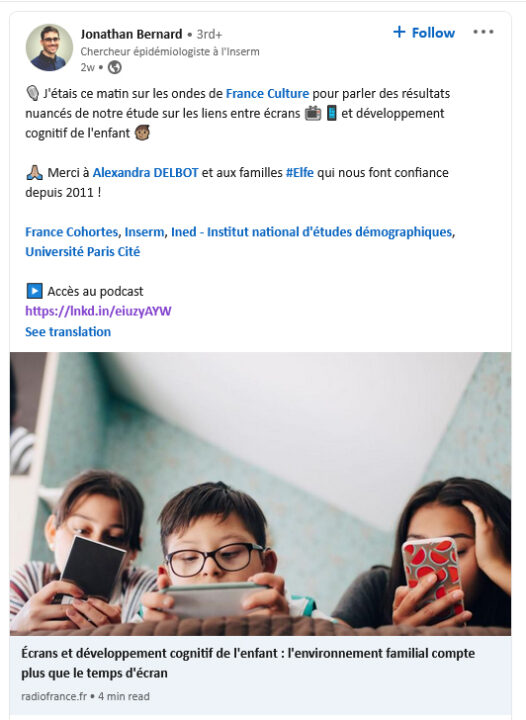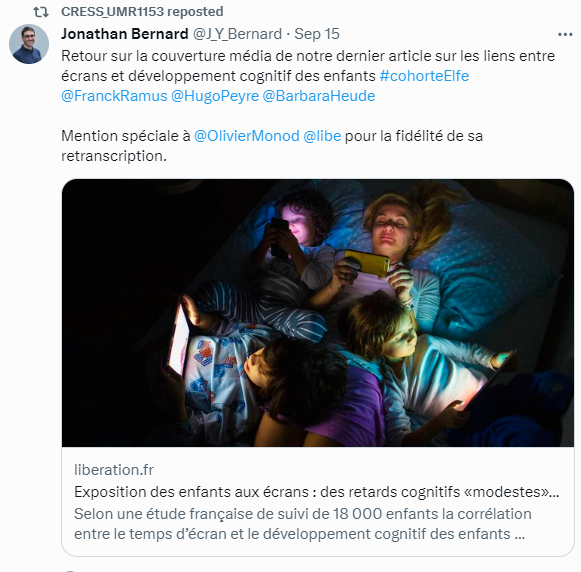Jonathan Bernard, epidemiologist at Inserm and co-author of the study “Associations between screen use and cognitive development in early childhood: the Elfe birth cohort” published on August 29, 2023 in The Journal of Child Psychology and Psychiatry, was on France Culture on Tuesday September 19 to talk about the link between screens and children’s cognitive development.
In this 4-minute podcast, he talks to the columnist about the study and explains the link between screens and the cognitive development of children:
“We observe that there are negative relationships between the use of screens and the cognitive development of children. But when we take into account the entire family environment, in particular the socio-professional category of the parents, the level of studies, their age, etc., all these factors that characterize the family, the direct effect of the use of screens on cognitive development becomes much more modest, that is to say that the majority of the “The effect that we see crudely is largely due to social factors linked to the family.”
The family environment is a confounding factor regarding screen time and the child’s cognitive development. Jonathan Bernard states on this subject:
“social factors must be taken into account because these social factors influence both screen time or the fact that the television is on during the meal, but also on the cognitive development of children.”
Therefore, in this example, if the television is on during a meal, there will be less social and verbal interactions, influencing the acquisition of new words.
Furthermore, Libération published an article on the day of the presentation of the research results on September 13.
In this article, which reviews the results of the study, the correlations between screen time and cognitive development are nuanced, because these lose weight when family factors, or other activities are taken into account.
“We have a reduction in these relationships of 40 to 80% when we take into account family factors. They are therefore crucial” – Jonathan Bernard, in the Libération article
Furthermore, the article also emphasizes that: “Researchers have even analyzed the effect of the time spent by parents in front of the television during pregnancy to begin to integrate into their analysis the screen time of the parents in addition to that of the children. A path that they want to continue to explore in the future.”
The Elfe cohort includes 18,000 children born in mainland France in 2011, and the study was carried out from 2013 to 2017 (children aged 2 to 6 years).

